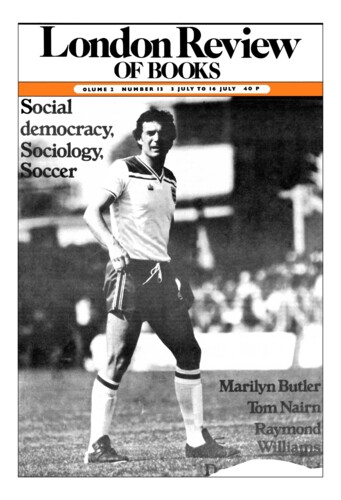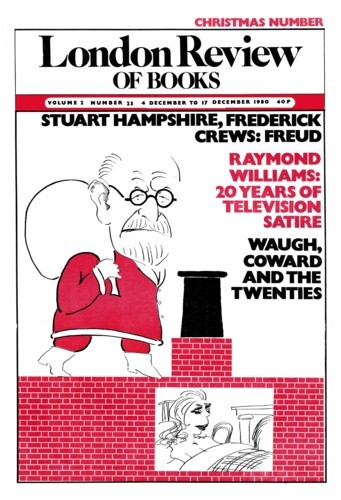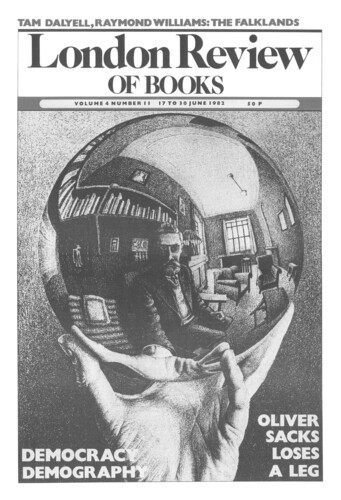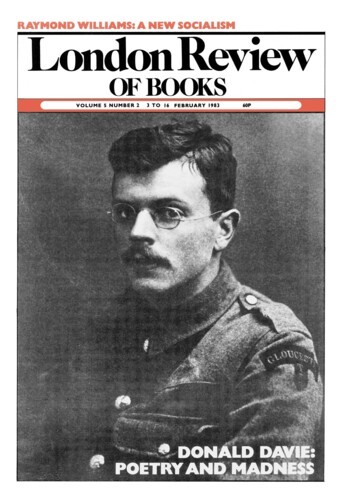Isn’t the news terrible?
Raymond Williams, 3 July 1980
‘I see the news is bad again.’ The banal phrase punctuates my memories of the late 1930s. I remember an adolescent anger that people would not name the things that were happening: the invasion of Austria; the cession of the Sudetenland; the invasions of Czechoslovakia and Albania – all packaged as ‘the news’. While in London it no doubt seenmed ridiculous that Chamberlain referred to Czechoslovakia as a far-off country of which we knew little or nothing. I could see, there in Wales, that what he said was true for these railwaymen and farmers, whose gravity and abstraction, at this level of affairs, at once puzzled and irritated me.





